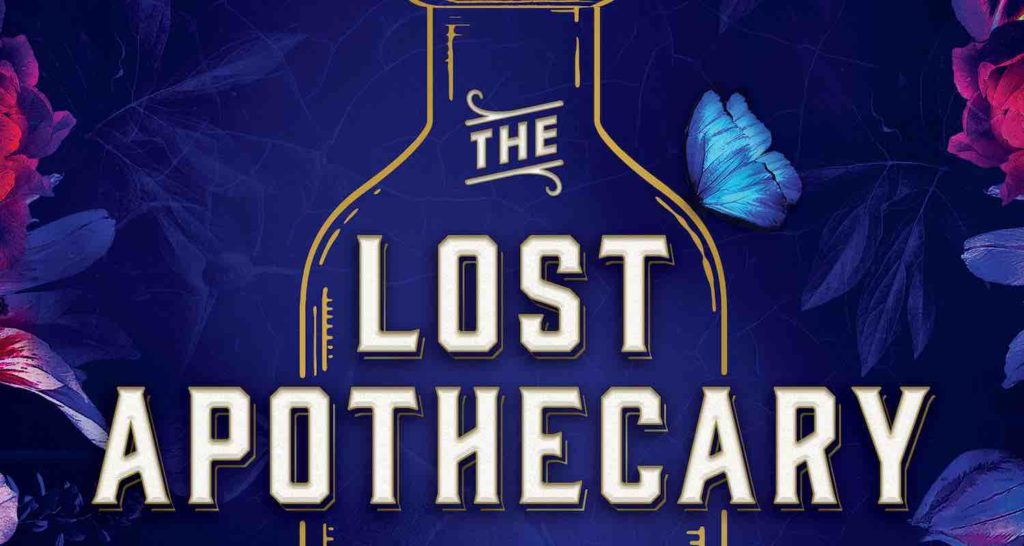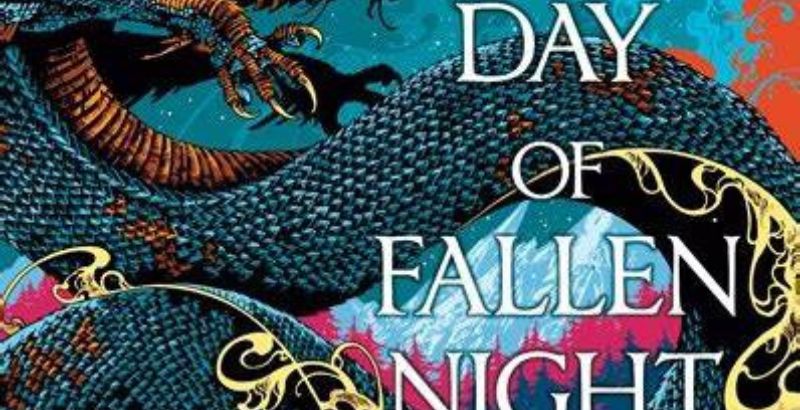 The Lost Apothecary is a historical fiction novel by Sarah Penner published by Park Row Books, an imprint of Harlequin, a subsidiary of HarperCollins. The audiobook is published by Harlequin Audio and is narrated by Lorna Bennett, Lauren Anthony, and Lauren Irwin.
The Lost Apothecary is a historical fiction novel by Sarah Penner published by Park Row Books, an imprint of Harlequin, a subsidiary of HarperCollins. The audiobook is published by Harlequin Audio and is narrated by Lorna Bennett, Lauren Anthony, and Lauren Irwin.
In the late 1700s in London, a women’s apothecary Nella kept a book. In that book: the names of women who solicited her poisons to kill men who wronged them. In modern London, Caroline is visiting London for what is supposed to be her 10th wedding anniversary, but instead, she is getting as far away from her husband as possible, having just discovered his infidelity.
The chapters of The Lost Apothecary rotate between three voices: Nella, an ailing apothecary of women’s remedies who doubles as a dispenser of poisons; Eliza, a 12-year-old whose faith becomes entangled with Nella’s when she picks up poison on behalf of her mistress; and Caroline, a modern protagonist whose unfaithful husband is the absolute worst type of man and finds herself unexpectedly uncovering Nella and Eliza’s history for the first time.
The three-point of view characters have distinct voices (literally, with three different readers in the audio narration) but share a universal disposition. Nella has an air of wisdom with a tinge of assumption, which mixes well with Eliza’s confident naivety. And Caroline is adrift, not as sure about anything as the other two besides that her life needs a total reboot. All three women, though, are living in the shadow of men, their atrocities, and balancing the expectation and allure of motherhood. Infidelity, abandonment, and, much worse, don’t only traumatize the main characters, the men in their lives nearly completely ruin them forever. Secret poisons sound almost alluring.
Writing multiple perspectives over different time periods takes a lot to ensure every character’s story is equally compelling. The perspectives do all work together thematically and are individually interesting. But something is just slightly missing from both time periods to help fully bridge them. It’s perhaps the lack of a true mystery, at least, until the very last minute, in the present-day story that keeps the two sides of The Lost Apothecary feeling like two separate stories for much of the book. They’re both enjoyable stories on their own, but I wish there was just a smidgen more that would keep me in an elevated state of intrigue over what would happen next.
Again, both halves are indeed compelling on their own. Caroline’s plight with her husband, budding new friendship in England, and adrenalized pursuit of self-determination is both intense and gratifying. I detest her husband entirely and was repeatedly triggered by his behavior as it so immediately reflected emotional abuse I’ve sustained in my own relationship history. If Penner was not writing from her own personal experience, she was certainly drawing from a powerfully recognizable well. But for as uncomfortable as I was on occasion, Caroline’s absolute not just resilience but total imperturbable momentum right through him is perfect.
Nella and Eliza’s intergenerational relationship is very appreciable as well. While there isn’t necessarily affection between them, you can sense strong mutual admiration lacing their interactions. Eliza especially is written aptly as a 12-year old. Rather than the infallible tween of so many stories, she is totally as unwitting a child as a 12-year-old girl in the 1790s would be while still as headstrong as any child deserves to be.
And while there is a clear throughline between Caroline’s discovery of an apothecary vial and her quest to discover its story and the lives of Nella and Eliza, it just never feels like a mystery. It’s clear this adventure is significant to Caroline, who once dreamt of studying at Cambridge and becoming a historian. But it’s not necessarily lived through the book’s narrative and structure so much as told through Caroline’s chapters alone. It’s a totally compelling story, but because the mystery for nearly the whole book is “who is this apothecary” and the reader already knows the answer to that question, there isn’t an opportunity to feel the same high of uncovering a long-kept secret that Caroline experiences herself.
The Lost Apothecary is a good story from three perspectives displaced by several centuries, bound by the universal shadow of abusive men. While I wish there was just a sliver more suspense or mystery to keep the momentum between the two time periods, each side of the book holds its own with decent and empathetic characters.
The Lost Apothecary is available wherever books are sold on March 2nd.
The Lost Apothecary
TL;DR
The Lost Apothecary is a good story from three perspectives displaced by several centuries, bound by the universal shadow of abusive men. While I wish there was just a sliver more suspense or mystery to keep the momentum between the two time periods, each side of the book holds its own with decent and empathetic characters.





